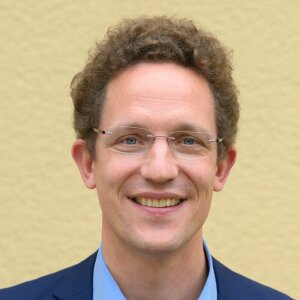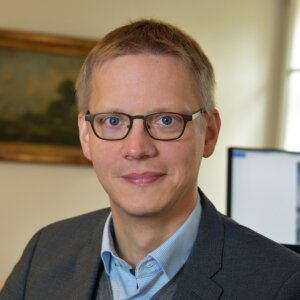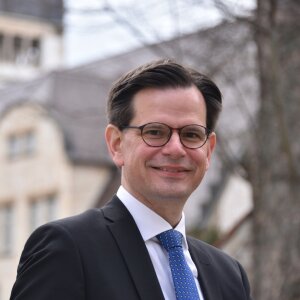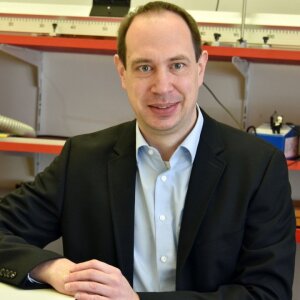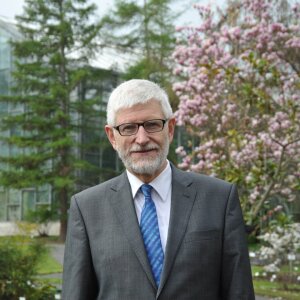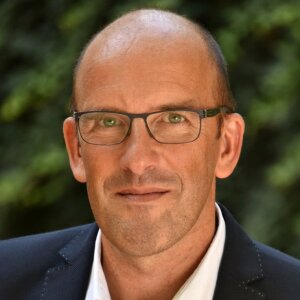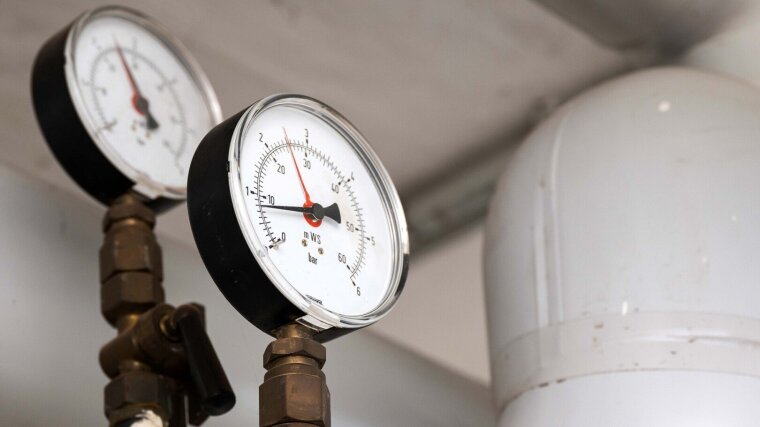
Lighting, offices, bonus miles… We asked researchers from the University of Jena what they are doing without in the face of the energy and climate crisis, the ongoing coronavirus pandemic and the war in Ukraine. They also told us what is essential for them and what has turned out to be redundant and outdated during the crisis.
Survey: Irena Walinda
Birgitta König-Ries
Professor of Distributed Information Systems
Professor Dr Birgitta König-Ries
Image: Jens Meyer (University of Jena)One thing we can't do without is our research, which aims to preserve, develop and integrate FAIR research data in the interest of making science more sustainable and developing solutions to overcome the climate and biodiversity crisis.
What do we not want to do without? A nice mixture of digital and face-to-face formats in research and teaching: fast digital communication in working groups, but also personal meetings; streaming of presentations at conferences, but also networking opportunities that only real meetings can offer; hybrid teaching with plenty of room for interactive elements.
What should we not do without? Breaks. We're often tempted to arrange tight schedules packed with digital formats. You can switch seamlessly from one video conference to the next. We end up sacrificing the time needed to catch our breath, prepare for a meeting or think about something in peace.
Matthias Knauff
Professor of Public Law, especially public Commercial Law
Professor Dr Matthias Knauff
Image: Jan-Peter Kasper (University of Jena)The overlapping crises of our time are also leaving their mark on legal research and teaching. There's been a shift in topics and priorities; our individual, long-term scientific interests are sometimes overshadowed by objective research needs. To a certain extent, however, this is a natural characteristic of jurisprudence as a discipline which is inextricably linked to the development of the legal system to which it is essentially related.
It is to be hoped that we don't stay in crisis mode for too long, since highly relevant topics such as climate change, digitalization and demographic change are also awaiting legal research. I really do welcome the digital boost that teaching, self-administration and conferences have experienced as a result of the Corona crisis. The progress achieved in this respect should be secured and expanded in the interest of ensuring the quality of our education, sustainability, and time management. Last but not least, the fact that you no longer have to submit paper forms is a real step forward in everyday university life. At the same time, however, I've come to appreciate the special quality of personal exchange. That's why the future is hybrid!
Malte C. Kaluza
Professor of Relativistic Laser Physics
Professor Dr Malte C. Kaluza
Image: Jens Meyer (University of Jena)It's not that easy to save energy in our high-power laser labs. As temperatures have to be kept exactly the same throughout our experiments, our air conditioning system consumes much more electricity than the lasers themselves. The computers and other electronic devices required for controlled laser operations also account for a large amount of our energy consumption. We have already improved our efficiency by minimizing the number of computers as much as possible. We also switch off our devices whenever they're not in use, which also reduces the amount of heat energy that has to be dissipated by the air conditioning system.
Every reduction in energy consumers and heat sources in the laboratory is therefore reflected twice over in the overall energy balance. Far too little attention was paid to these aspects of research work in the past, but the current crisis shows just how important they are and will continue to be in the future.
Kristina von Rhein
Managing Director, Faculty of Economics and Business Administration
Dr Kristina von Rhein
Image: Anne Günther (University of Jena)What can we do without – and what can we not do without? Both of these questions are difficult to answer. On the one hand, we don't want to compromise on our quality of life or prosperity. But if you think about it more closely, that's exactly what is asked of us at the moment. I think that everyone has to do their part but should also be allowed to do so on a somewhat individual basis.
In terms of our day-to-day work, I think that our main focus should be on making our processes more efficient and, above all, more resource-friendly. The ERP project is a good start – it puts us on the right track in the long term.
Johannes Grave
Professor of modern Art History
Professor Dr Johannes Grave
Image: Anne Günther (University of Jena)While museums are working hard to save energy and air conditioning and drawing up contingency plans, university art history can only adopt the measures we all see in our everyday lives: turning down the radiators, improving ventilation, avoiding unnecessary trips or even working from home more often, so that only one workspace has to be heated instead of two.
The early days of the pandemic showed us some of the things we can't do without unless we're prepared to make huge sacrifices: personal interactions and direct encounters with works of art, which can never be fully replaced by digital copies. As we look beyond the current energy crisis, we should consider rethinking things in other areas. When it comes to publications, we should favour quality over quantity. We should also restructure academic career paths - we're potentially wasting young people's precious time and opportunities by providing them with further qualifications after their doctorate in temporary positions without offering them suitable long-term employment prospects.
Christopher Spehr
Professor of Church History
Professor Dr Christopher Spehr
Image: Anne Günther (University of Jena)The crises of the past few years have brought about positive change in many respects, as we've introduced more flexible ways of working, reconsidered our previous working conditions and structures, and added a touch of inventiveness to our lesson plans. Thanks to digital teaching and forms of communication in research and administration, we've managed to boost our attendance rates and saved on travel time and expenses. We've also noted an increased awareness of sustainability, for example in the use of energy and paper.
At the same time, I've noticed that online formats also have a few weak points. For example, there are significant restrictions when there's a power cut or when the university network is down. More importantly, personal interactions in everyday university life can be supplemented by digital formats, but they can never be replaced. The creative exchange of ideas is fuelled by face-to-face meetings, whether in seminar rooms, at workplaces or in committee meetings.
Holger Cartarius
Professor of Teaching Methodology in Physics and astronomy
Professor Dr Holger Cartarius
Image: Anne Günther (University of Jena)If you look at some of the things we were initially forced to give up, and then sometimes ended up being grateful for having to give up, short trips are at the top of my team's list. It's really easy to hold meetings and small conferences online, which also makes it easier to fit them into your everyday life. That's turned out to be a win, because the technical possibilities have provided us with a multi-location seminar that gives us completely new insights.
This has also facilitated our cooperative research activities, because you can talk to one another more often online and not just at conferences. However, many aspects of the teaching covered by my research group still have to be carried out on site, especially practical lessons in the laboratory. But relying solely on classroom-based teaching has become outdated. It's much easier to include those who can't be there for good reason - and you can still save energy at work by heating and ventilating wisely.
Frank Hellwig
Professor of Systematic Botany
Professor Dr Frank Hellwig
Image: Anne Günther (University of Jena)The coronavirus pandemic has given us a real boost on the road to digitalization in teaching. On the other hand, we've struggled with a few aspects of our practical teaching, such as in plant identification courses and field work. With a view to climate action and the energy crisis, we've taken the necessary steps to ensure that our greenhouses in the Botanical Garden can be largely heated with renewable energies in the future. We're looking to use geothermal and solar energy, which means that most of our CO2 emissions will be cut.
The use of digital means of communication has also made many of our business trips unnecessary, which also helps to fight climate change and saves us a lot of time. However, we've also noticed that face-to-face interactions are needed from time to time to cultivate relationships and mutual understanding. Finally, we too have been affected by the war in Ukraine. We've discontinued or postponed our cooperation with Russian scientists.
Georg Pohnert
Professor of Analytical Chemistry
Professor Dr Georg Pohnert
Image: Anne Günther (University of Jena)My team works in the field of microbial communication. We are one of the many groups at our university researching sustainability issues. But are our research activities themselves sustainable? In short, the answer is »no«. After all, we use a lot of energy to run our analytical devices, we use plastic vessels and pipette tips to cultivate our model organisms, and we travel to field stations and conferences.
However, these activities are essential for productive research. We scrutinize the operating times of our devices, we think about where we can avoid waste without jeopardizing our experiments, and we thoroughly evaluate which trips are necessary and whether there are sensible alternatives. We've changed our everyday laboratory practices and critically question our resource efficiency as part of our planning. However, we can't stop using resources if we want to continue to efficiently obtain new knowledge.
Jutta Hübner
Professor of Integrative Oncology
Professor Dr Jutta Hübner
Image: UKJENERGY: We can do without unnecessary energy that doesn't let us achieve anything worthwhile. We shouldn't do without the energy we sense when we're passionate about something and can inspire others. Enthusiasm is the best form of renewable energy, because it's the foundation of our human existence. HEATING: We can afford to turn down the heating a few degrees here and there, such as in our homes and maybe even in offices, but not in our hospitals, surgeries and old people's homes. RESOURCES: We can and must do without resources that are consumed instead of created, but we can never do away with the most important human resources: values, freedom, dignity and the opportunity to give our own life meaning. POWER: We have to do without power that only serves to destroy, but not where it gives us strength, protection and support, and doesn't make us appear powerless.
Above all, we should avoid focusing on the negatives in our everyday language and science communication. Instead, we should think about what we can do and what we have to do: the unwavering belief that research makes an important contribution to solving current and future problems; the commitment to teaching that inspires young people to get involved and not to despair of their own future; the courage to look beyond the bad sides of life and see the good, beautiful and righteous and to stand up for it.


